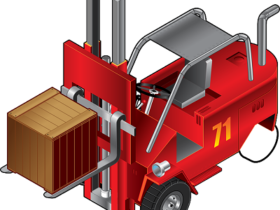When it comes to sheds, not all are built the same. Some start strong but age poorly, warping under weather or rusting before their time. Others, however, stand firm year after year — durable, weatherproof, and built to last. The difference almost always comes down to one simple factor: the materials.
A shed is more than a backyard storage box; it’s an investment in organization, property value, and peace of mind. That’s why the best shed company doesn’t cut corners — it chooses superior materials to ensure longevity, performance, and customer satisfaction.
If you’re planning to buy or build a shed, understanding why materials matter (and what makes them great) can save you money and headaches in the long run.
The Foundation of Quality: Why Materials Matter
Think of your shed like a small house. The walls, roof, and floor all serve vital functions — keeping out water, pests, and harsh sunlight. Cheap materials may look fine at first, but they degrade quickly, leading to leaks, rot, or even collapse.
High-quality materials, on the other hand, offer:
- Weather resistance: Withstand heat, cold, rain, and humidity.
- Structural strength: Prevent warping, bending, and cracking.
- Long-term savings: Less repair, maintenance, and replacement costs.
- A better look: Premium finishes enhance your property’s appearance.
In short, great materials build great sheds — it’s that simple.
What Sets the Best Shed Companies Apart
Reputable shed builders know that every detail counts. The best ones source top-tier materials that deliver reliability and longevity. Here’s what to look for:
1. High-Grade Steel and Timber
Strong frames are the backbone of any shed. Leading manufacturers use:
- Galvanized steel to resist corrosion and rust.
- Treated pine or hardwood for natural insulation and strength.
- Engineered timber for stability and reduced shrinkage.
2. Protective Roofing Systems
A good roof keeps everything underneath safe and dry. Look for:
- Colorbond® or coated steel roofing for UV and weather protection.
- Proper drainage and pitch to prevent pooling water.
- Insulated panels if you’re using your shed as a workspace.
3. Durable Wall and Floor Panels
Walls and floors face the most wear and tear. The best Shed company uses:
- Heavy-duty steel cladding for dent resistance.
- Moisture-sealed flooring to protect against ground dampness.
- Double-reinforced joins to prevent gaps and air leaks.
4. Hardware and Fastenings that Last
Even the strongest materials need the right connectors. Premium sheds feature:
- Zinc-coated screws and hinges that won’t rust.
- High-tensile bolts for maximum load-bearing capacity.
- Weatherproof seals on doors and windows.
Comparing Shed Materials: A Quick Reference Table
| Material Type | Pros | Cons | Ideal For |
| Steel | Strong, rust-resistant, low maintenance | Can get hot in direct sun | Storage, workshops |
| Timber | Natural look, great insulation | Needs sealing and upkeep | Garden sheds, hobby spaces |
| Vinyl/Plastic | Lightweight, affordable | Less structural strength | Temporary or small sheds |
| Composite | Eco-friendly, low maintenance | Slightly higher upfront cost | Modern residential sheds |
How to Choose the Right Shed Materials
If you’re unsure which materials fit your needs best, follow this checklist:
✅ Define your purpose: Is your shed for storage, tools, or workspace?
✅ Consider your climate: Hot, humid, or coastal areas need rustproof and UV-stable materials.
✅ Think about aesthetics: Match materials to your home’s look and style.
✅ Set a long-term budget: Paying a bit more upfront often means less maintenance later.
✅ Ask about warranties: Trusted companies back their materials with solid guarantees.
Pros and Cons of Premium Shed Materials
Pros:
- Extended lifespan and better structural integrity
- Reduced maintenance costs
- Improved weather resistance
- Enhanced property value
Cons:
- Higher initial investment
- Slightly longer lead times for quality supply
Still, for most homeowners, the benefits far outweigh the costs — especially when you consider decades of reliable performance.
Frequently Asked Questions (FAQ)
Because sheds are constantly exposed to weather, moisture, and wear. High-quality materials prevent rust, decay, and leaks — ensuring the structure lasts longer.
Both have advantages. Metal sheds are durable and low-maintenance, while wooden sheds offer insulation and a classic look. The best choice depends on your needs and climate.
Keep it clean, check for rust or wood rot annually, and reseal or repaint as needed. Proper upkeep extends lifespan dramatically.
The best shed manufacturers offer 10–25 year warranties on steel and roofing materials. Always verify this before purchasing.
For top-quality sheds built with premium materials, visit Western Sheds. Their team combines decades of experience with materials that stand the test of time.
Conclusion
When it comes to sheds, shortcuts don’t save money — they create problems. The best shed company knows that using superior materials is the foundation of lasting performance, visual appeal, and customer satisfaction.






